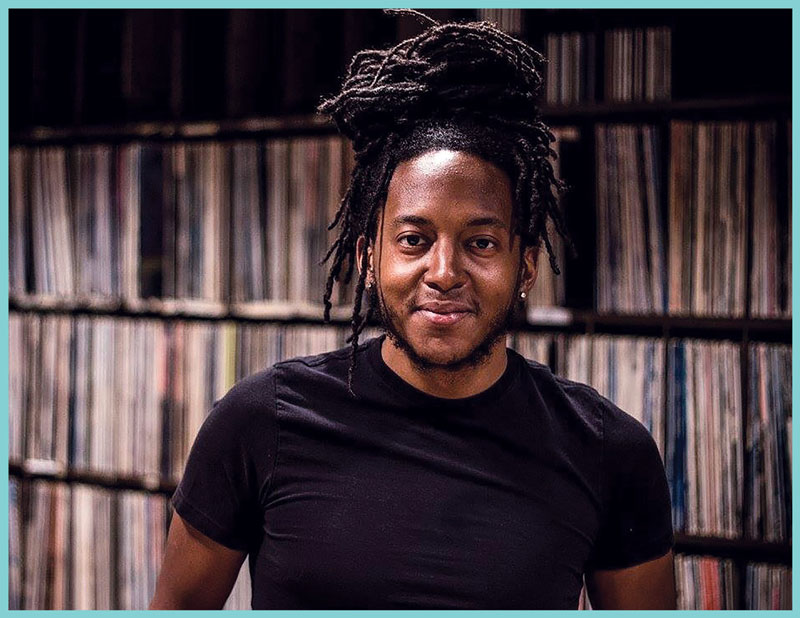Expanding the Canon: CSO and EarShot Collaborate to Nurture Today’s Composers
by Erica Reid

One challenge that contemporary orchestral composers face is the near-impossibility of fully workshopping their music before its first performance. Many composers lean on popular tools such as the music notation software Sibelius to synthesize the music they are writing, but most do not have the opportunity to hear their music performed by a full symphony orchestra until the dress rehearsal, at which point there is only time for minor tweaks and revisions.
Enter EarShot, a 25-year-old program of the American Composers Orchestra (ACO), which bills itself as “the first ongoing, systematic program for developing relationships between composers and orchestras on a national level.” ACO Director of Artist Equity Loki Karuna describes the EarShot Readings program as creating a “front door” for composers to engage with orchestras. “Getting this opportunity to really interface with orchestras, to hear their music realized live and in the moment, and also to practice engaging with conductors and musicians for feedback about what does work, what doesn’t work—it’s really a unique aspect of the EarShot Readings,” he says.

On October 4, the CSO will collaborate with EarShot on a public performance of four brand new pieces of music by emerging and early-career composers, selected from roughly 400 entries. “There is no fee to apply, and there’s also no age limit, which is something that we’re very proud of,” says Karuna, explaining that the chief criterion is that selected composers cannot have had more than two previous works performed by professional orchestras. “We’re identifying a lot of really talented composers who just haven’t been given the chance,” he says. ACO narrows the pool to 25–40 finalists, and the partner orchestra—in this case the CSO—participates in selecting the final four.

Karuna is thrilled about October’s composers and their music. Audiences will hear Leyou Wang’s Impressions from Tianqiao, inspired by sounds and aesthetics from his native China; Martin Hebel’s Radiant Pillars, which plays at the intersection of music and astronomy; Giuseppe Gallo-Balma’s Los Huesos de Yayael, which is rooted in Dominican and Haitian folklore and includes traditional voodoo drumming; and Joseph Sowa’s Summer Has Ten Thousand Stars, inspired by what Karuna calls “two skyward-viewing poems.” He adds, “We are extremely excited not only about the diversity of who we platform, but also the diversity of thought and approach when it comes to what audiences will ultimately hear from the stage.”
“This, I hope, is a marker that we, as an institution, take our role in the field seriously,” says CSO President and CEO Jonathan Martin about this partnership. “The Cincinnati Symphony Orchestra has had a long history of nurturing, primarily through commissioning, young composers or composers whose voices have not readily had a place.” He continues, “It’s our obligation to do so, but it also creates exciting programs.”
Martin says he was attracted to EarShot’s work as a result of the “incredible energy” of the President & CEO of American Composers Orchestra, Melissa Ngan. “She and I quickly found that we shared a lot in common,” he says. “We’re both interested in creating change within orchestras and in the industry of classical music.”
Ngan agrees, calling Martin an optimist like herself. “From my perspective, we [ACO] are here to take care of the next 50 years of American orchestral music, and to make sure that it is vibrant and beautiful,” she says. Ngan believes not only in creating career opportunities for composers, but also giving them a healthy platform through which to create their most authentic work. To do so, she wants not only to invite new composers into the space but also question what happens once they get there, to examine whether the processes are serving both the composers and the orchestras at large. “A lot of what we think about is the continuum of care that has to exist from a composer’s first intersection with an orchestra to when they actually gain momentum in their career,” she explains, pointing out that other programs within EarShot provide support and guidance around public speaking, program design, publishing contracts and beyond. “We want to make sure that composers have everything they need to be great partners to orchestras, and vice versa, because it really is an ecosystem. It’s both ways.”
Programs like EarShot benefit composers tremendously. Martin, who also studied composition in college, notes that composers often lack opportunities to hear their music in real time, receive feedback from conductors and section principals, and make adjustments to their work as a result. “It enriches the whole writing experience,” he confirms. “I wish there had been something like that in my school. It’s a laboratory, and there was probably some version of this a hundred years ago, but I’d like to see more of this happening in our field.”
Martin believes that the CSO is an ideal orchestra to take on a collaboration such as EarShot, pointing out that the CSO musicians—many of whom are also teachers—fully understand and embrace the importance of this developmental work and create a friendly, supportive environment for the visiting composers. “[EarShot] creates better composers, and I think it creates better orchestras,” he says. “And it creates better [musical] works, because the goal of this is to expand the canon, to expand the palette.”
The CSO’s EarShot Readings take place October 3–4 and culminate with a public concert on October 4 at Music Hall, led by CSO Associate Conductor Samuel Lee and CSO Assistant Conductor Daniel Wiley. According to Karuna, audience members can expect both EarShot staff and the composers themselves to speak from the stage about the music being presented. This EarShot collaboration is an unmissable experience that boldly challenges industry norms by putting the compositional process front and center while providing a showcase for the upcoming voices of the symphonic artform.